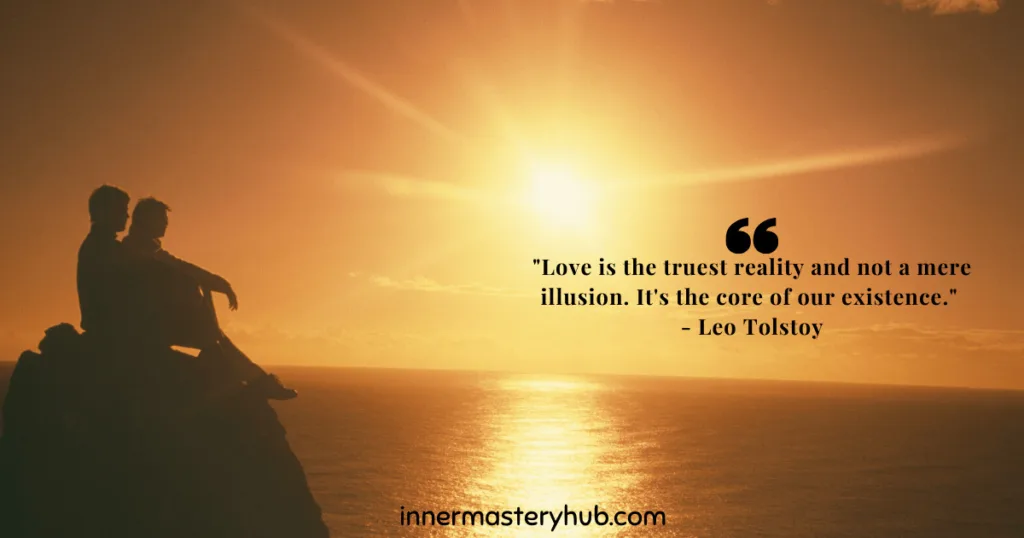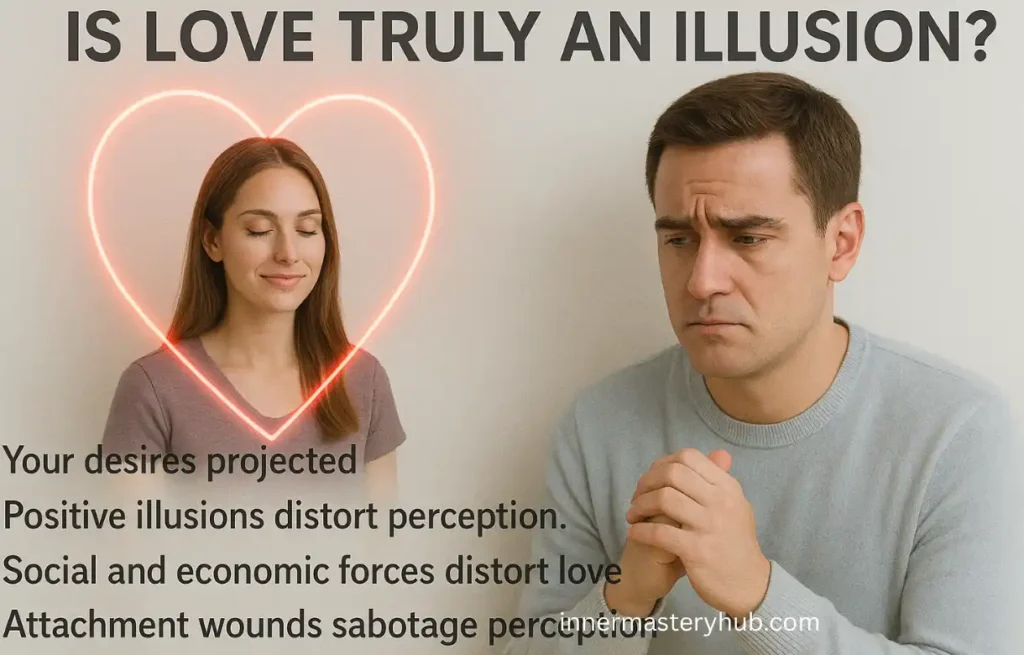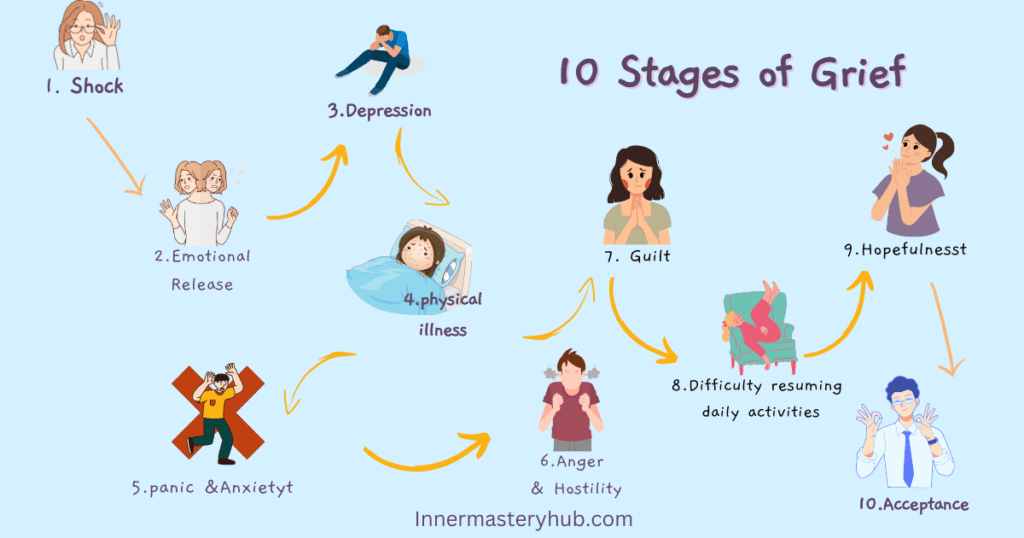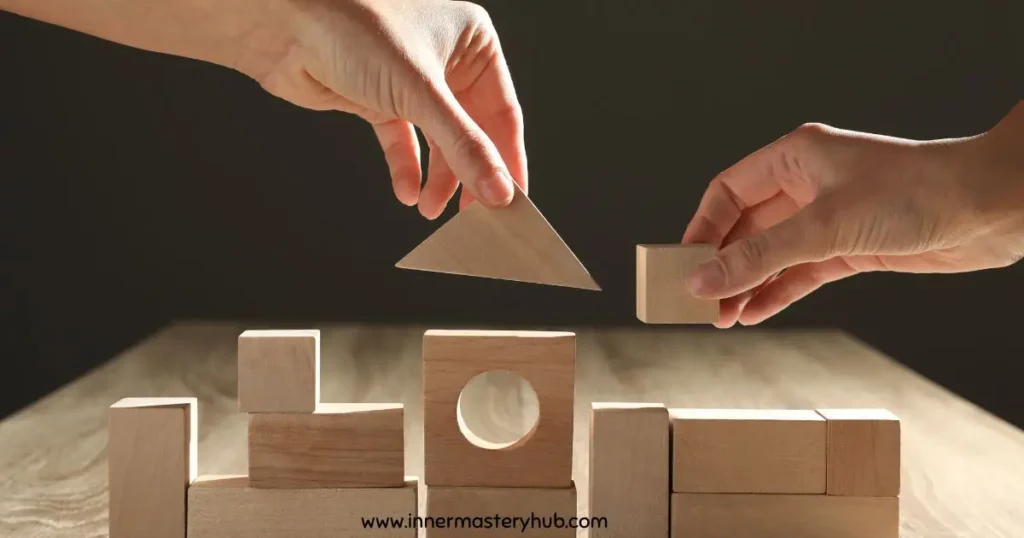Love Is an Illusion” Exploring 12 Ways To Readjust Your Lens

“Is Love an Illusion?” is a question you may have asked yourself several times. When love hurts, you often start to question if it was really “real.” To help you see clearly, heal, and form more sincere connections, I present 12 arguments in this essay that demonstrate love is an illusion—not because I wish to shatter hope.
Since I have witnessed how emotions, expectations, and imaginations can deceive both myself and loved ones, you have probably experienced such disillusionment as well.
Is love an illusion?
You put your time, passion, and belief in love into finding it. However, many people cynically conclude that “love is an illusion” after their relationships fail and they end up broken. When you hold back, anticipating disappointment, or romanticise partners until they break under duress, that belief can become self-fulfilling.
The issue is that misconceptions, prejudices, cultural narratives, hormonal manipulations, and projective fantasies may cloud your conception of love. Your connections will be brittle if your base is illusory.
If you don’t first recognise those delusions, you’ll keep making the same mistakes: promoting someone too soon, failing to recognise warning indicators, and being caught off guard by treachery. Pain sets in.
Biological chemistry masks itself as love.
Dopamine, oxytocin, and vasopressin—neurochemicals which induce infatuation and bonding—overflow your brain. Scientists compare addiction and passionate love.
That “high” is mistaken for evidence of a soulmate. However, the chemistry will alter or wane. You feel duped if your love was based solely on that surge.
Positive illusions distort perception.
People frequently overestimate their partner’s positive qualities and minimise their partner’s shortcomings. We refer to that as “positive mean-level bias.”
You fall in love with your perception of them rather than their actual nature. Disillusionment ensues when that illusion is challenged by reality.
Your desires projected
You project onto your spouse what you need or want them to be: a saviour, a healer, or a reflection of your ideal self. Your imagination overshadows their actual identities.
You feel deceived and think, “love was never real,” when they later fail to live up to it. In reality, though, your presentation was what you cherished.
Media and cultural norms impose unachievable expectations.
You get a script from romance books, fairy tales, and movies: “soulmates,” “instant connection,” and “happy ever after.” That is rarely the case in real life.
You feel betrayed when your relationship veers off course. However, it’s not necessarily the relationship that’s to blame, but rather the societal delusions you internalised.
Love as a Survival mechanism, not pure emotion.
Love, particularly pair bonding, evolved to support reproduction, child-rearing, and Survival. Rather than being a spiritual ideal, love might be an innate function.
Therefore, what you feel is not an independent “pure” emotion, but rather a portion of biological programming. Because you are intellectually aware that those impulses might be deceptive, that can make love seem imaginary.
Flawed accuracy in judging relationships
According to research, people can detect their partners’ characteristics with modest tracking accuracy, but they are also biased in their assessments.
Love, then, is a combination of illusion and reality. Although many judgments are biased, you may believe that you have a deep understanding of someone. You are constantly partially blind, which calls into question the absolute assertion that “love is real.”
Attachment wounds sabotage perception
You see love through the prisms of your emotional scars, such as insecurity or abandonment. A gentle remark turns into a betrayal; a gesture of kindness is overrated. Your fears leave spaces that are filled by illusions.
Because of the demands of your concerns, you wind up believing falsehoods.
Relationships change, but your delusion cannot.
A long-term relationship is not maintained by the first feelings you had, such as passion or great longing. Love must develop into mutual respect, trust, and development.
However, suppose you hold onto the original delusion (that the “spark” must endure forever. In that case, any change feels like a collapse, leading you to believe that “love was only a delusion all along.”
Past events are reshaped by selective memory.
You recall early dates, kind gestures, and putting aside disagreements. To preserve the illusion you began with, your mind gradually filters out occurrences.
Later, when conflict arises, the illusion is destroyed as your mental story collides with reality.
Betrayal, disappointment, and conflict reveal illusions
There is tension, conflict, disappointment, and betrayal in every relationship. When these materialise, illusions disintegrate.
It was never love, you might say. However, tests always expose delusions. Nothing is solid if it is constructed on delusion.
Illusory walls are the result of intimacy anxiety.
You may unintentionally put up barriers, such as imagining a distant spouse or being afraid of becoming truly intimate. To avoid being vulnerable, you cling to illusions.
Therefore, love turns into an illusion—not because it isn’t real, but rather because you employ illusions to keep love at a distance.
Social and economic forces distort love.
Financial stress, social conventions, family pressure, and expectations (status, wealth, and image) all influence relationships in ways that skew real connection.
Instead of genuine bonding, the “love” you witness may be obedience, obligation, or performance. Because it is, it feels illusory.

How to keep the balance
Awareness: name the illusions
Know when you’re idealising, projecting, or following chemistry alone. Keep a notebook to record your disillusionment and the illusion that led up to it.
Take it slow, early love.
Before making important decisions, let the chemistry settle. Stop your emotional rush. The initial months are when the illusions are most intense.
Acquire knowledge of a healthy reality check.
Ask those you can trust to identify warning signs. In relationships, give candid feedback. When you idealise someone, ask them to call you out on it.
Balance with logic and values
Don’t let your love make you lose sight of reality. Verify goals, values, communication styles, and compatibility. Incorporate feelings with actual criteria.
Develop an understanding of yourself.
Resolve your personal issues and fears to avoid unintentionally projecting. Be aware of your patterns. The delusions you inherited can be broken with the aid of therapy or contemplation.
Ensure reciprocal development and progress together.
Know that love transforms. You and your relationship need to develop, adjust, and compromise. You will suffer if you hold onto the false belief that love is constant.
Embrace vulnerability
Let your true self shine through. Make sure your buddy does the same. Illusions frequently keep you from forming genuine connections. Being vulnerable might be frightening, but true love requires it.
Be resilient and forgiving.
Treat the dispute as a test rather than evidence of delusion. Please take note of it. Beyond imagination, forgiveness, empathy, and communication restore trust.
Establish a shared reality and customs.
Create a life together with common objectives, customs, and memories. That gives love a solid foundation and lessens the possibility of illusion.
Remain open to mystery and humility.
Don’t pretend you control love fully. Understand that you will never fully understand all aspects of love. Being humble allows you to acknowledge that you may be partially incorrect, which leads to improvement.
Conclusion
Though it may sound like a sour maxim, “Love Is an Illusion” frequently results from a combination of disappointment and misinterpretation. Though they are meant to hone your vision, the 12 reasons listed above demonstrate that love is an illusion. When you can plainly see illusions, you can decide to start with something more authentic.
You deserve a real-life relationship, not just a fairy-tale one, based on vulnerability, growth, honesty, and respect for one another. Therefore, let the illusions fade and let a more authentic, messy, and powerful love emerge in their stead.
Some Quotes,” Love is an Illusion”
“Love is not an illusion. It’s the lens through which we see the world clearly.” – Marianne Williamson.
“Love is not an illusion. It’s the only reality.” -Unknown
“Love isn’t an illusion; it’s our very essence.” – Rumi
FAQS About Love Is An Illusion
What do people mean by “love is an illusion”?
They mean that love is only a trick of the mind — a fantasy, deeply idealised, or based on false perceptions rather than reality. It suggests romantic feelings aren’t truly grounded in a lasting connection, but in projection, chemistry, or wishful thinking.
Why do some people feel love is an illusion after heartbreak?
After betrayal or pain, ideal images crumble. People may generalise from a single negative experience and conclude that all love is false. Their trust and hope are shattered, leading them to believe love was never “real” to begin with.
Is “Love Is An Illusion” true in real life?
For some people, yes. “Love Is An Illusion” feels true when emotions fade or expectations fail. But others believe love becomes real through trust, time, and effort. Illusion or not depends on how mature, honest, and mutual the relationship is.
Why do people say “Love Is An Illusion”?
People say “Love Is An Illusion” when they’ve been hurt, betrayed, or disillusioned. They feel love only tricks the mind into believing in forever. This phrase reflects emotional pain and the realisation that fantasy doesn’t always match reality.
What is the psychology behind “Love Is An Illusion”?
Psychologists say “Love Is An Illusion” arises from projection. We project our hopes, fears, or unmet needs onto others. The brain also releases chemicals like dopamine, creating intense feelings that fade with time, making love seem like an illusion.
What can we learn from “Love Is An Illusion”?
“Love Is An Illusion” teaches us to love with awareness, not fantasy. It reminds us to see people as they are, not as we wish them to be. Real love grows when illusion ends and truth begins.
Can “Love Is An Illusion” turn into true love?
Yes. Many relationships start with illusion but mature into real love as partners learn each other’s flaws and stay committed. The illusion fades, but deep affection and understanding can replace it — turning fantasy into reality.
How to know if “Love Is An Illusion” is in my relationship?
If your love depends on perfection, fantasy, or constant excitement, it might be an illusion. Real love grows through patience, honesty, and shared values. Illusory love fades when challenges come; true love endures through them.
Is love really an illusion or just an idealised concept?
Love often combines reality with illusion. You might idealise or project, but there is also a real connection, emotions, and attachment. Research shows both accuracy and bias in how people judge love.
What research supports love illusions?
Meta-analyses show positive mean-level bias (seeing partner better than average) and moderate tracking accuracy (seeing traits correctly) in relationships.
How do I rebuild after believing “love is an illusion”?
Start by healing your heart. Reflect on what illusions you believed. Adjust your expectations. Practice real connection slowly. Seek therapy or a supportive community. Allow yourself to love again with clearer eyes.






